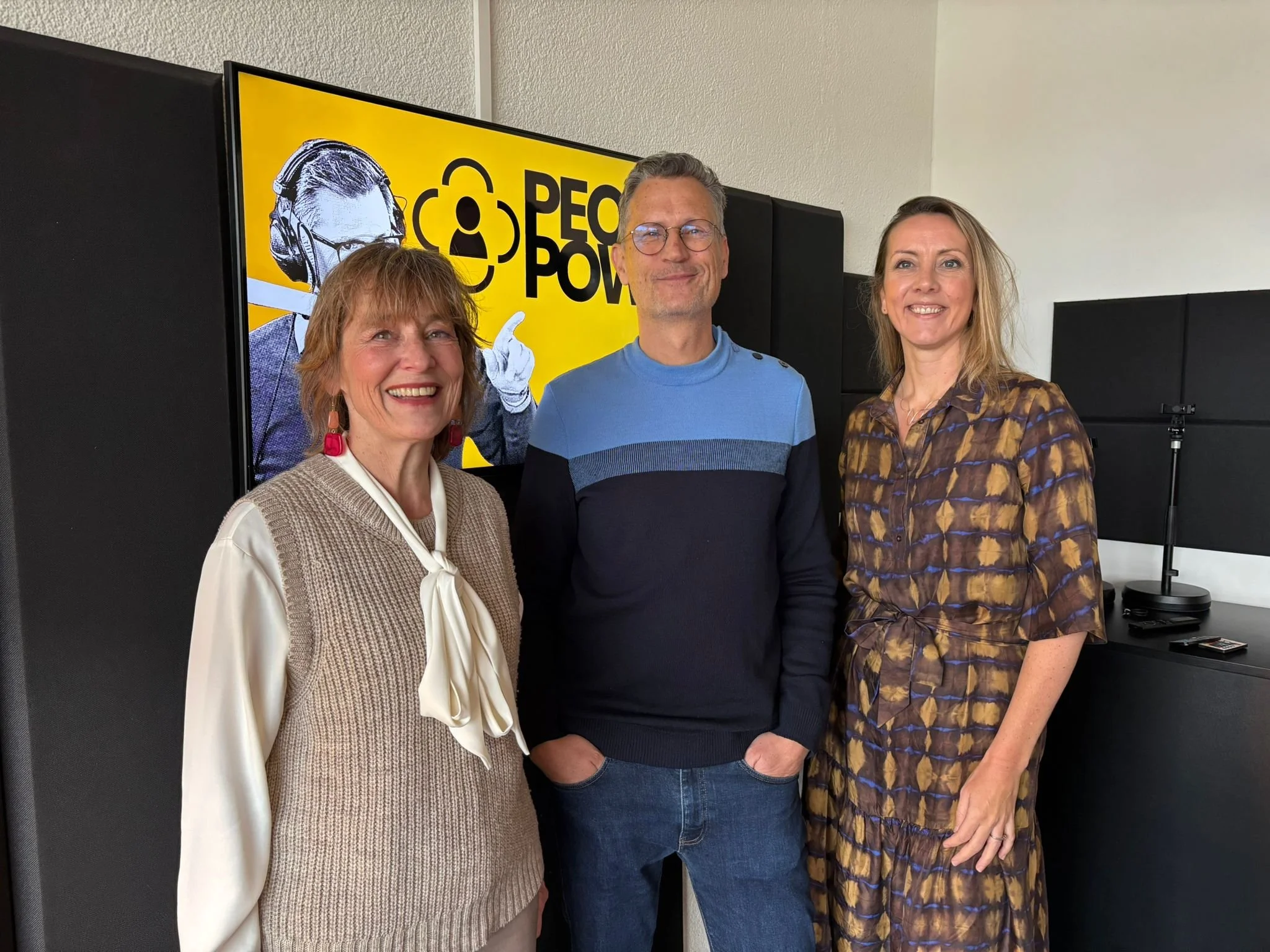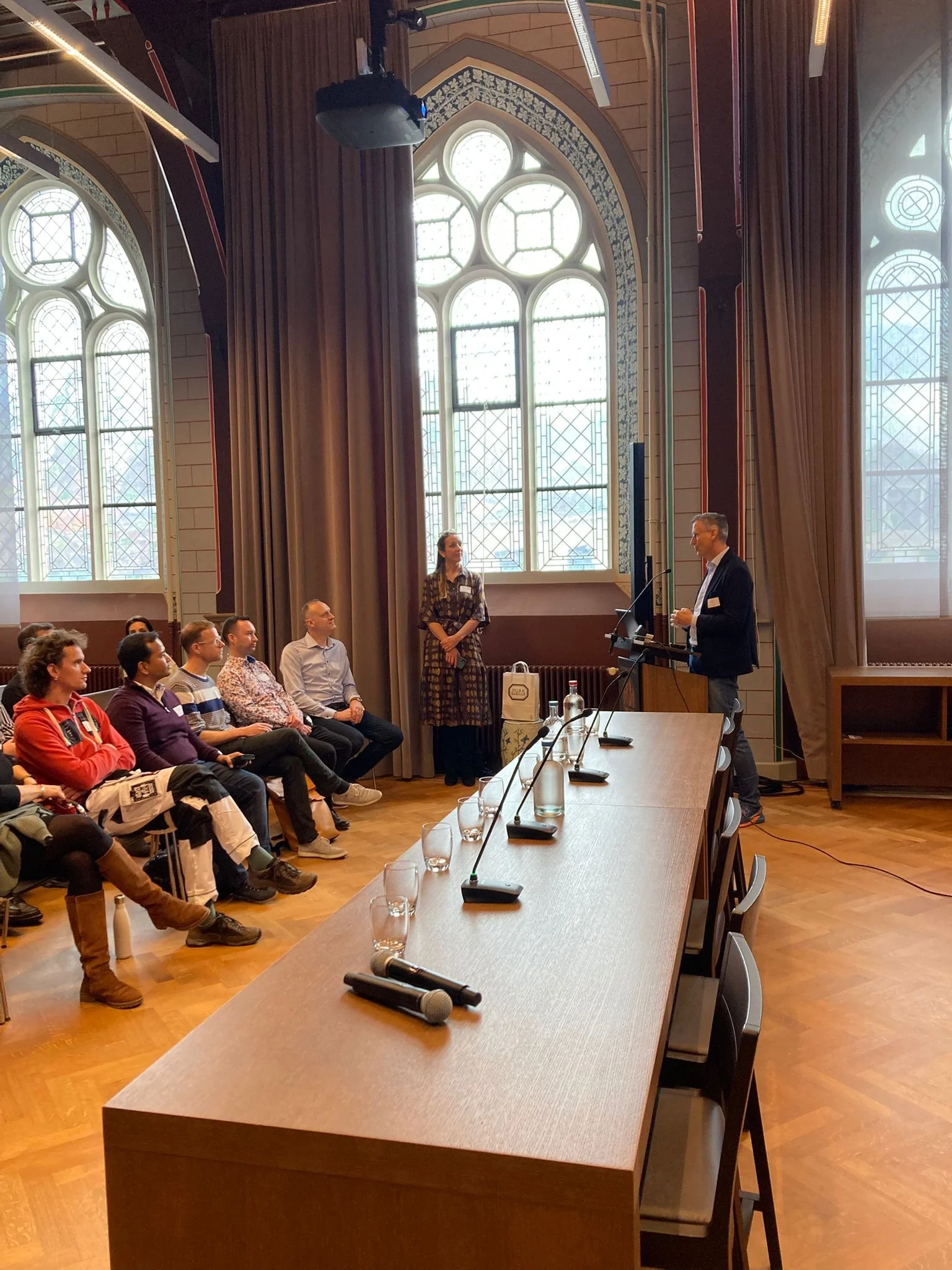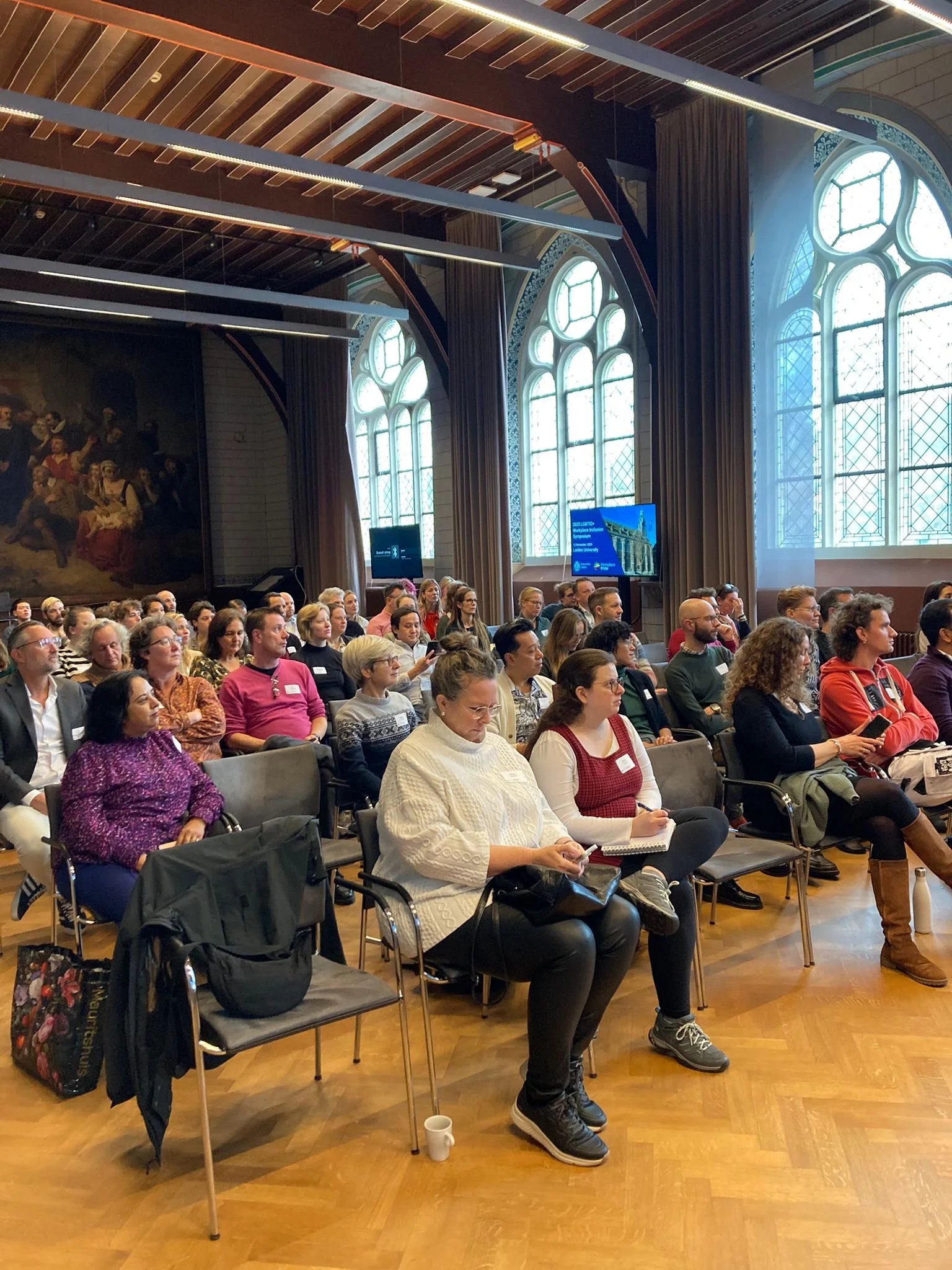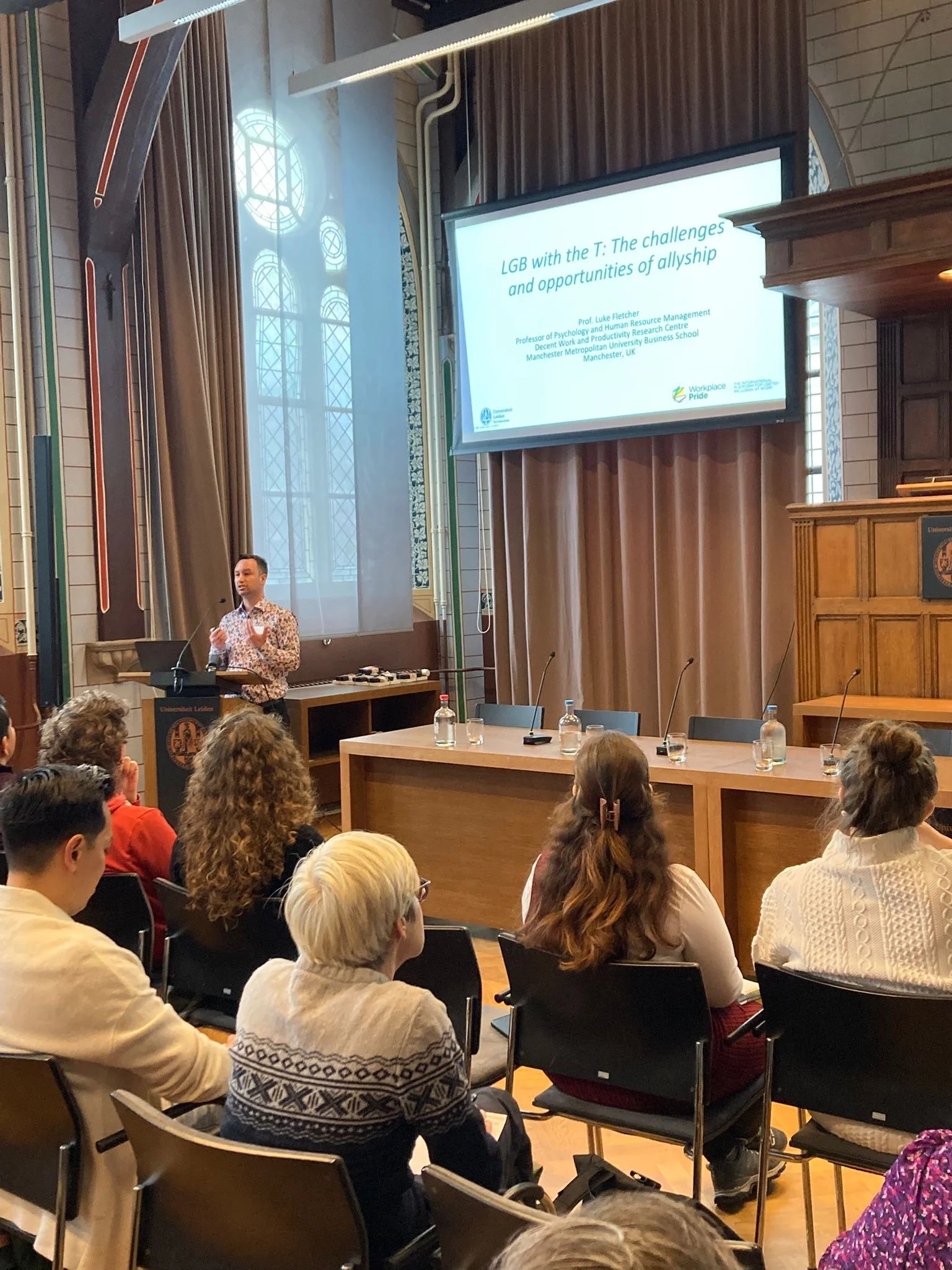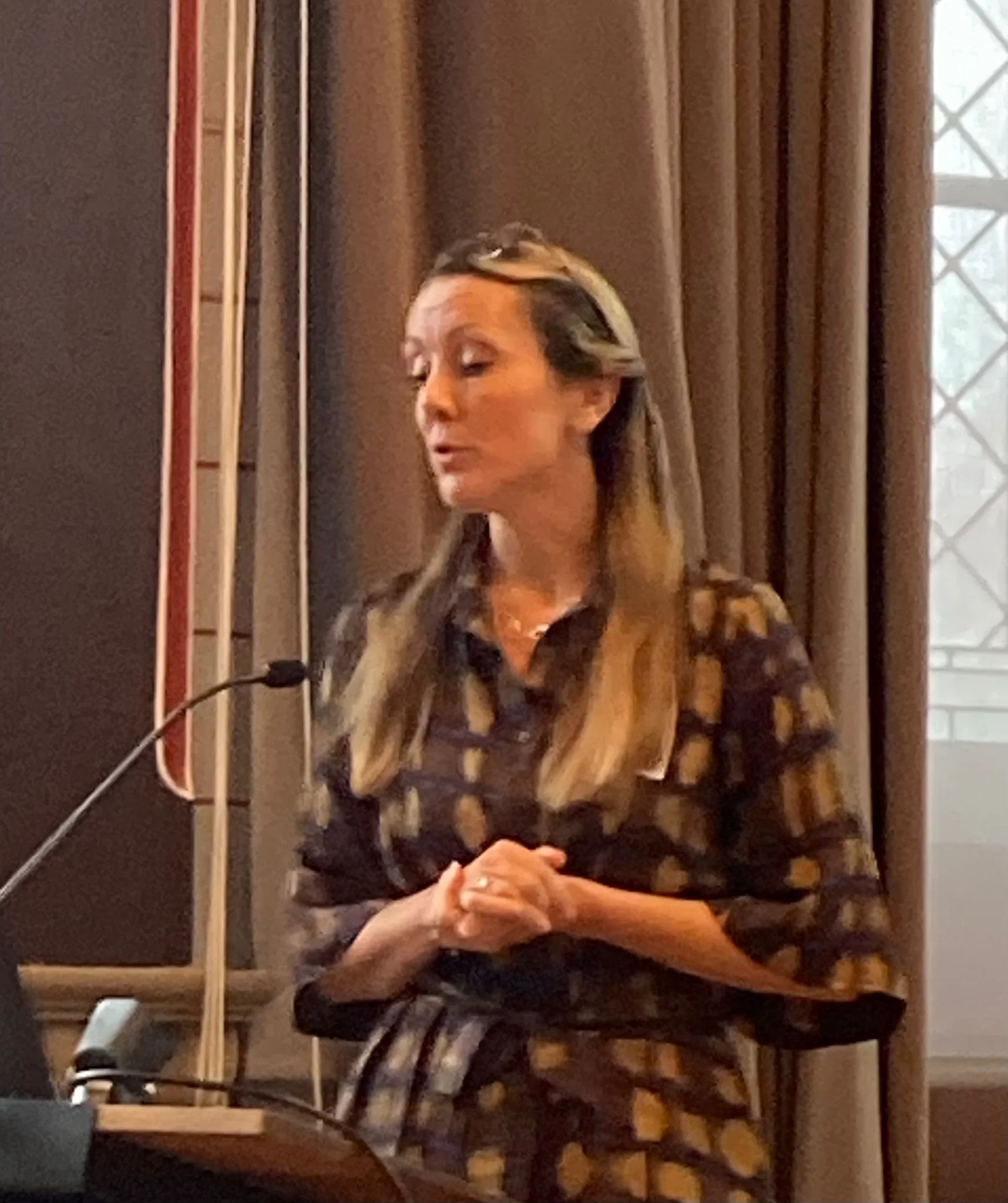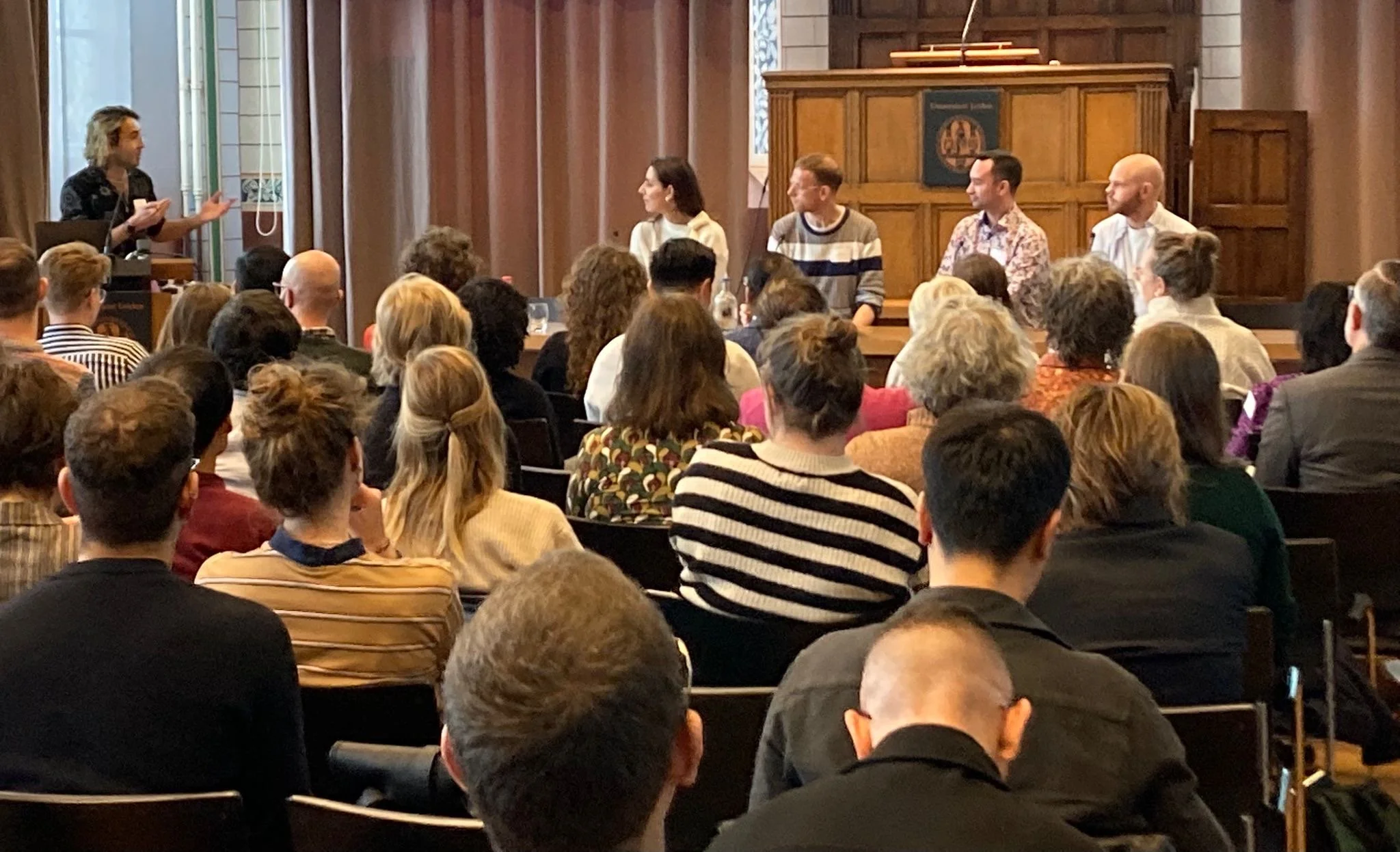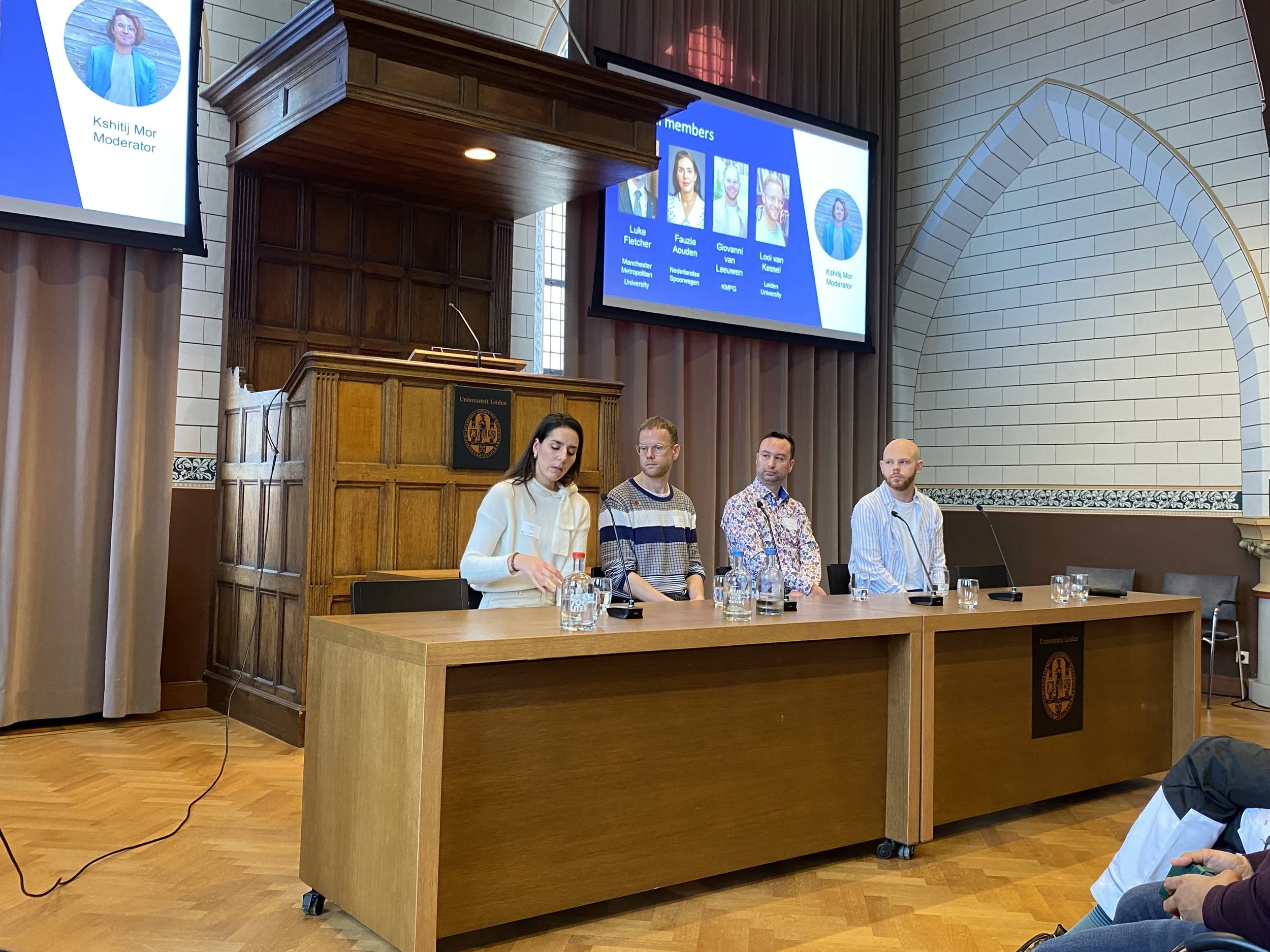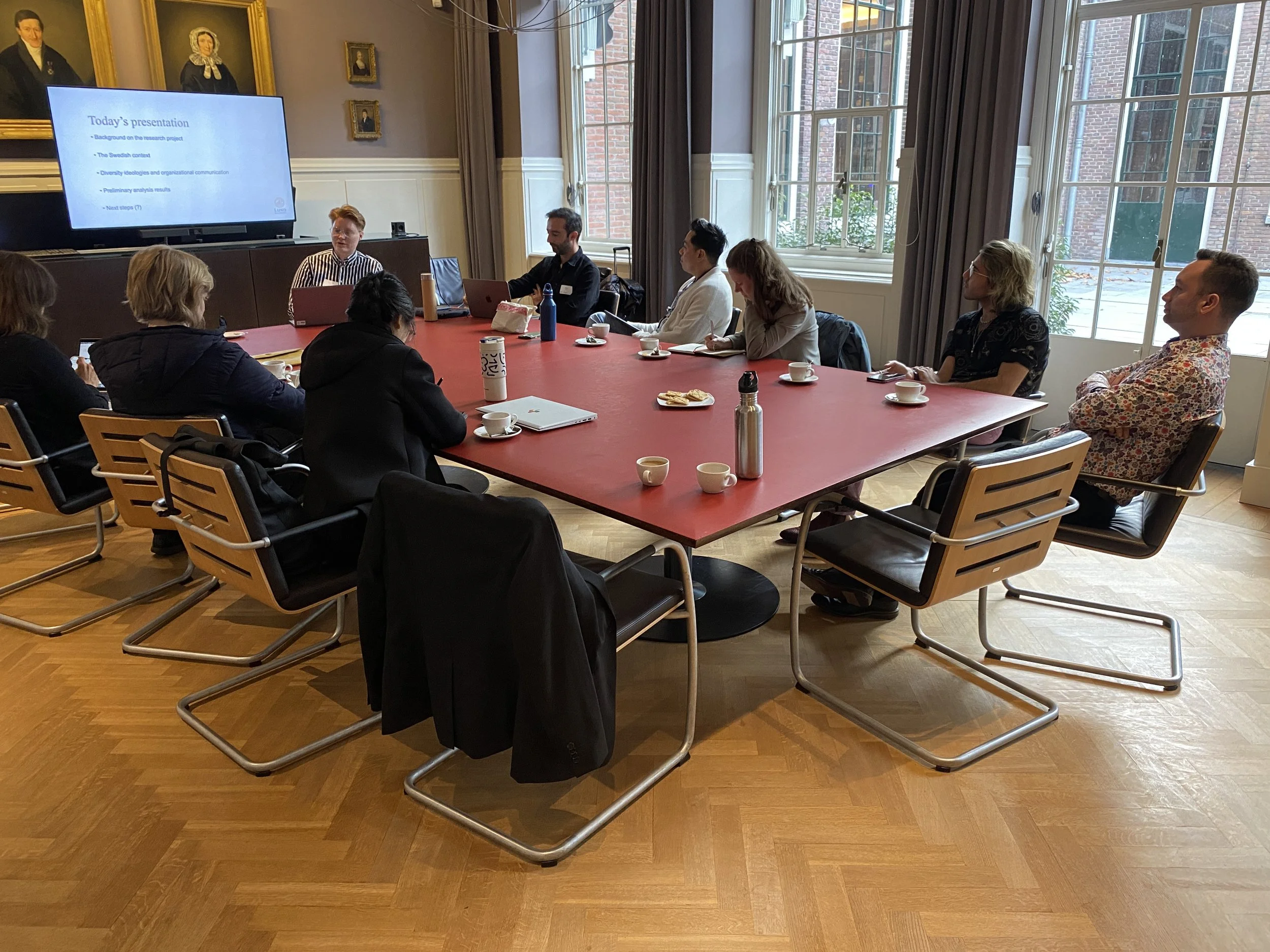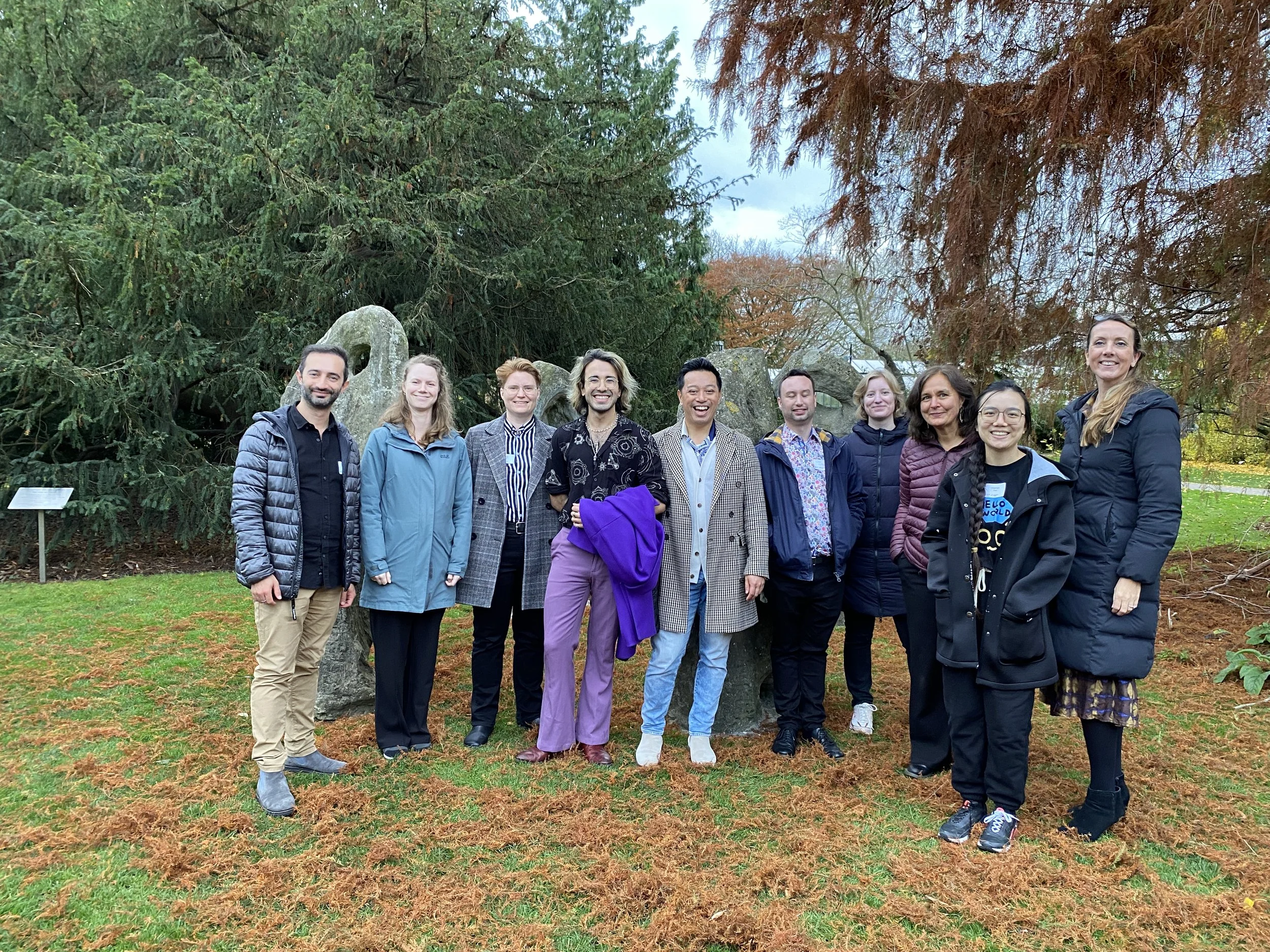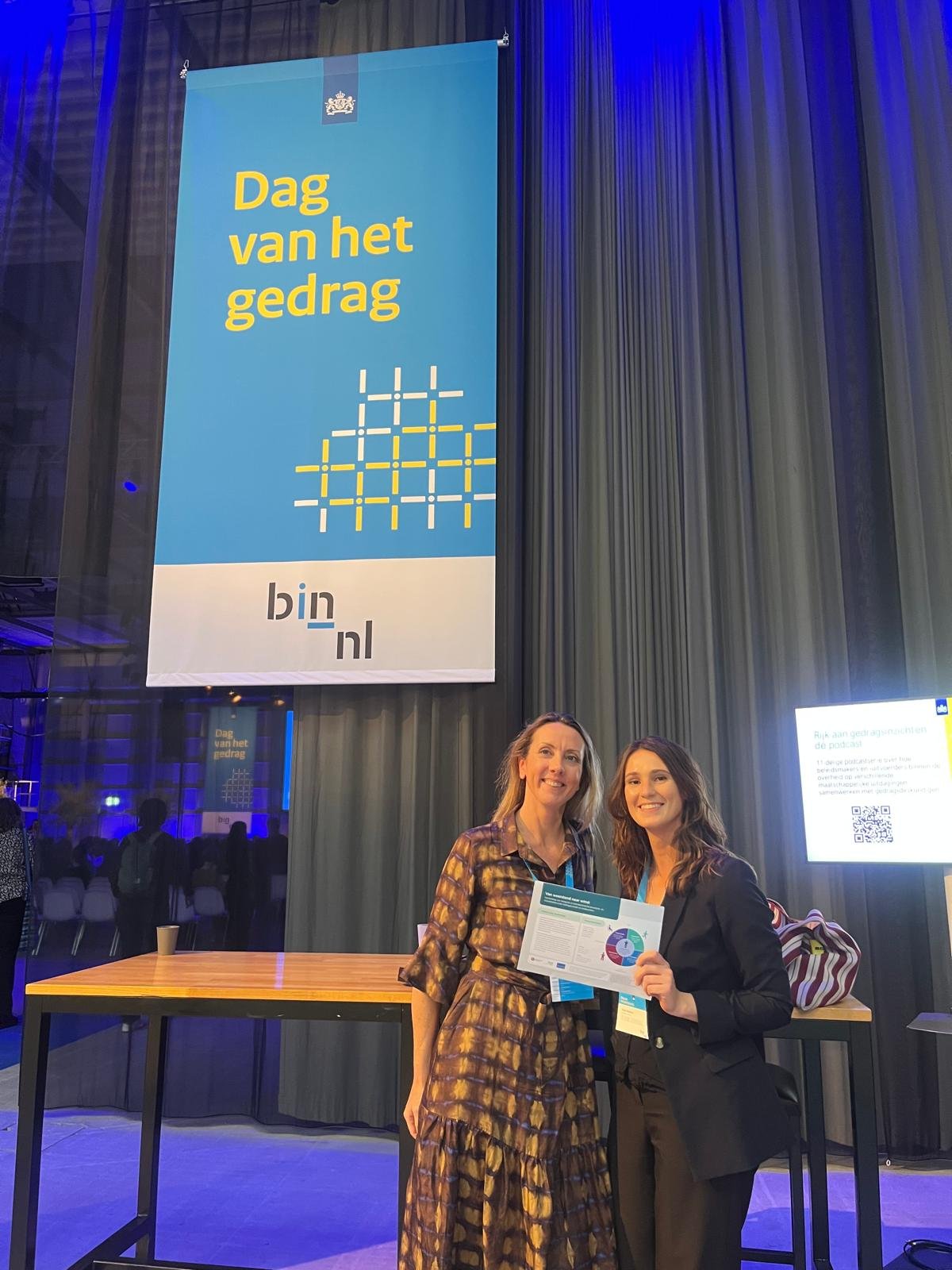Today it is Purple Friday! Although visible signs like these are sometimes dismissed as superficial, they can in fact contribute to inclusion. By wearing purple, you signal that you care about the wellbeing of LGBTIQ+ people, which can strengthen their sense of identity safety. This was demonstrated by interviews with bi+ people in our research by the Institute of Psychology at the Leiden University and Bi+ Nederland. This also connects to the research by Kshitij Mor, on the importance of identity conscious communication in attracting and retaining LGBTIQ+ employees.
Moving forward in D&I policy
For who thinks that diversity and inclusion policy has had its peak… listen to the podcast Vastlopen of vooruit in diversiteitsbeleid? (Getting stuck or moving forward in diversity policy?)
Together with Michiel Kolman and Liesbeth van de Garde, I joined Glenn van der Burg from People Power to discuss how organizations (can) stay the course in D&I policy, especially now that international programs are under pressure. Where do we stand? What does really work in change? And what role do leadership and resistance play in that?
We talked about:
🔹 the dynamics of change in D&I procedures
🔹 why resistance is not the end, but a signal for growth
🔹 what leaders can do to keep momentum
🔹 how intervision and collaboration contribute to sustainable policy
An inspiring conversation in which science and practice met. I could draw on the insights of our project Het moet wel werken, a collaboration between the Netherlands InclusivityMonitor, SER Diversity at Work and the Goldschmeding Foundation.
Thanks to New Business Radio and Future of Work Platform for the invitation!
2025 LGBTIQ+ Workplace Inclusion Symposium
Yesterday, I had the privilege of bringing together scholars, practitioners, and organizational leaders at the Telders Auditorium at the University of Leiden for a day of learning, dialogue, and connection on LGBTIQ+ workplace inclusion. Hosted in collaboration with Workplace Pride, the symposium offered rich insights grounded in both research and practice.
Program Highlights
🔹 Keynote 1 – “LGB with the T: The Challenges and Opportunities of Allyship”
Prof. Luke Fletcher explored why allyship—often celebrated as a win-win solution—can be far more complex in practice. He discussed barriers that limit its effectiveness and the risks of backlash, especially amid growing global efforts to divide the LGBTIQ+ community and target trans and non-binary people. His keynote emphasized the urgent need for meaningful, united allyship to support our trans and non-binary colleagues, customers, friends, and family.
🔹 Keynote 2 – “Beyond For or Against: Understanding Employee Support for DEI Policy”
In my keynote, I shared findings from Yonn Bokern’s PhD project, showing that employees and managers are not simply “for or against” DEI policy. We identified five nuanced profiles—Champions, Ambivalents, Bystanders, Reluctants, and Opponents. Understanding these motivations helps organizations tailor strategies that build knowledge, motivation, and capability for genuine and sustained inclusion. See the handout in the comments.
🔹 Panel Discussion – Staying the Course in a Shifting DEI Landscape
Moderated by Kshitij Mor, panelists Fauzia Aouden (NS), Giovanni van Leeuwen (Capgemini), Looi van Kessel (Leiden University), and Luke Fletcher (Manchester Metropolitan University) reflected on the keynote insights and discussed how organizations can navigate pushback, maintain clarity of purpose, and keep inclusion efforts grounded in evidence and impact.
Community & Connection
Conversations continued over coffee and tea, creating space for new collaborations and reinforcing our shared commitment to more inclusive workplaces.
In the afternoon, I hosted a small-group academic meeting with colleagues from Sweden, Germany, the UK, and the Netherlands, where we learned about exciting new research by Amanda Klysing and Yasin Koc.
I am exhausted but deeply inspired. The day demonstrated how research, practice, and open dialogue can come together to build workplaces where everyone can belong and bring their authentic selves.
A heartfelt thank you to all speakers, panelists, and attendees for contributing to such a thoughtful and energizing day. 🌈
Presenting insights on Dag van het Gedrag
Today, Yonn Bokern and I shared the latest insights from our project Het moet wel werken on Dag van het Gedrag in the Fokker Terminal in The Hague. Couldn’t be there but still curious? This is our main take-away:
Support is not a linear process from attitude to behaviour, but a dynamic interaction of beliefs, motives and contextual factors. For organisations, this means that strengthening D&I-support calls for differentiated strategies - strategies which not only remove barriers, but also respond to the different motives behind support, resistance and inaction.
Magnificent Scrabble word
Pim Blom and Karen de Lathouder were interviewed on Pim’s new book Door het regenboogplafond in radioshow Met het Oog op Morgen on NPO Radio 1
The term heteroprofessionalism was also discussed. A ‘magnificent ccrabble word’, according to the interviewer and excellently explained by Pim.
I didn’t invent the term, Robert C. Mizzi did, but I wrote an article on it with colleagues and researched it within the Sustainable Cooperation Program (SCOOP) together with Chenhao Zhou and Kshitij Mor.
If you want to learn more about heteroprofessionalism and what it means for the rainbow ceiling, listen to the radio interview, read the article, or read Pims new book.
Through the rainbow ceiling
Today is Coming out Day, and instead of giving a lecture myself, I attended the book presentation of Pim Blom in Scheltema.
The book, “Door het regenboogplafond” (Through the rainbow ceiling) is a must-read for everyone who is curious about why LGBTQIA+ people are often invisible in the top of industry and wants to be inspired by those who are visible. Fifteen rich conversations, beautifully recorded by Pim.
From Resistance to Gain
Today, newspaper De Financiële Telegraaf published a piece called Weerstand tegen ‘woke’ personeelsbeleid groeit (EN: Growing resistance against ‘woke’ personnel policy), following a poll among HR-professionals by request of Visma YouServe. However, from the results of this poll one cannot conclude whether the resistance is increasing - the title is thus not correct. Though at first glance, the results are worrying: almost one in five participants supports statements as ‘diversity policy is nonsense’ or ‘it is woke and leads to unnecessary polarization’, this also means that over 80% of the participants disagrees with these statements. Even among the younger participants, whose judgements were on average more critical, over 70% disagreed. Important detail: no positive statements were included in the poll.
It doesn’t surprise me that organizations are struggling with support for diversity policy, and that HR-employees experience resistance. At the same time, it is important to also keep hearing positive sounds and to keep paying attention to the nuances.
Our research with the Netherlands Inclusivity Monitor shows a more nuanced picture of support for D&I policy. There are not only distinct advocates and opponents, but also employees who support the policy and mainly question the execution. Precisely that group offers valuable information for HR-professionals.
Criticism may come faster and be louder today, and HR-professionals - often responsible for the policy - are directly involved. But how can one respond to this?
For that reason, we developed a new handout, which offers practical advice to better understand support, hesitation and resistance and how to effectively deal with it.
Download our handout Van Weerstand naar Winst (EN: From Resistance to Gain).
Most important findings from the handout:
1. Support is more than for or against. Not everyone is distinct champion or opponent. There are also ambivalent employees, reluctants and bystanders.
2. Resistance often is not refusal. The group which is truly against D&I policy, is smaller than expected. More often, it involves unfamiliarity, insecurity or critical questions.
3. Managers are crucial. They typically see themselves as champion or reluctant: convinced of the importance of D&I, but sometimes critical on the execution. Their attitude and behavior strongly influence how inclusive employees experience their working environment.
4. Increase support by understanding profiles. Adjust your approach to your target group: appreciate champions, utilize the critical views of reluctants, inform ambivalents, activate bystanders and enter into dialogue with opponents.
The handout is part of the multiannual project Het moet wel werken, a collaboration between Utrecht University, SER Diversity at work and the Netherlands Inclusivity Monitor, made possible by the Goldschmeding Foundation.
New phase for the project Het Moet Wel Werken
A new phase for the project “Het Moet Wel Werken”! 🚀
With lots of energy and enthusiasm, we take the next step to make lasting impact on organizations’ diversity and inclusion practices.
🙏 Many thanks to the Goldschmeding Foundation for their support and to SER Diversity at Work for the great collaboration, and all public and private organizations that join our activities - together we make a difference.
“After the solid foundation laid in previous phases, we are now focusing on the dynamics of change: What roles do leadership and resistance play in the success of D&I policy, and how can organizations leverage these insights in intervision and collaboration? Especially at a time when international diversity programs are under pressure, it is crucial to understand how we can maintain and strengthen the direction in the Netherlands — informed by both scientific insights and practical experience.”
— Jojanneke van der Toorn, project manager of Het Moet Wel Werken and associate professor Social en Organisational psychology, Utrecht University
🔗 Read more here
The Rainbow Brief
🌈 Exciting news! I now have my own corner on the Workplace Pride website: The Rainbow Brief.
In this space, I’ll be sharing academic insights on LGBTIQ+ workplace inclusion, translating research into practical takeaways for organizations looking to foster more inclusive and supportive environments.
Check it out here.
I’m looking forward to sparking conversations, sharing evidence-based strategies, and learning from all of you as we work toward workplaces where everyone can thrive.
New paper: Blatant dehumanization in cultural traditions
Exciting news! Our new paper on blatant dehumanization in cultural traditions has just been published in Cultural Diversity & Ethnic Minority Psychology.
In this work, we examine how support for traditions such as Black Pete in the Netherlands and Native American mascots in the United States can be linked not only to differences in people’s beliefs about cultural traditions, but (surprise!) also to deeper dynamics of hierarchy, power, and dehumanization.
I am especially grateful to my colleague Daudi van Veen, who took the lead in driving this project to completion, and to Nour Kteily, whose insights and collaboration have been invaluable throughout.
You can read the journal article here.
No access? Check out the preformatted version.


